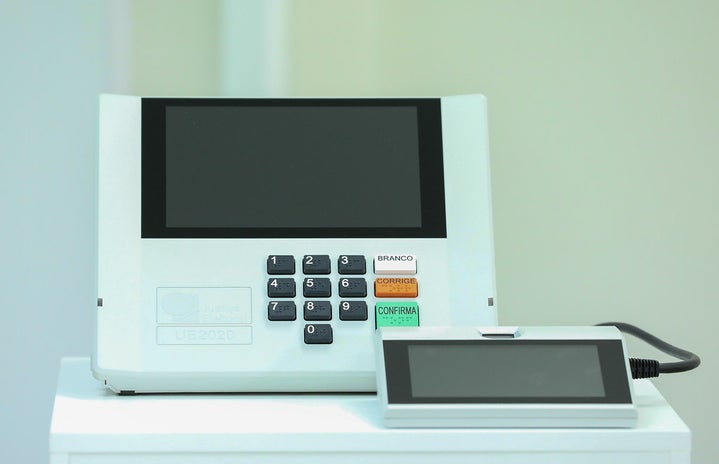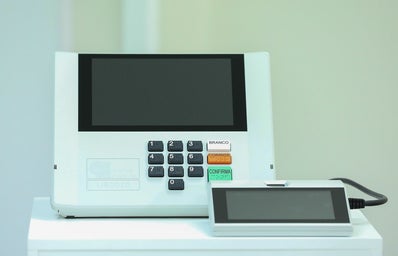Before the World Cup, we have another battle to confront: the elections are here. After four years of social, economic, and political happenings, we all have the opportunity to exercise our democracy by voting, not only for the president but for many other important positions.
Compared with 2018, the number of young electors (the ones between 16 and 18 years old) has grown by more than 50% – much of it because of the widespread use of campaigns encouraging young people to participate in the electoral process. However, after the title withdrawal campaign is concluded, very little is said about the elections themselves, the electoral offices, and how an election works. This leaves the young voting population at a loss as to the first time they will put the right to democracy into practice.
To help, let’s bring some explanations for first-time voters that everyone needs – but no one gives. Check out some tips on how to choose your candidates when voting!
Governor, senator, deputy… what?
The first thing you need to understand before voting is to know what each political office represents for democracy. Deputies and senators, in Brazil, discuss all the laws that govern the country, based on the Constitution and supervise the executive power. State deputies, in their state assemblies, take care of the legal competencies of each state and check the performance of the respective governors. On the other hand, senators, with a longer term of office than deputies – eight years -, take care of federal issues, complementing the actions of deputies and constituting, for example, commissions of inquiry.
“Deputies and senators end up being our representatives in Congress, our accounting in the electoral system. It was constituted to give the greatest possible amplitude in this representation”, says Carolina Botelho, Political Scientist, and Researcher at the Laboratory of Electoral Studies, Political Communication and Public Opinion. “From a personal point of view, a vote sometimes counts for very little in changing elections. But we have to understand that that vote grants someone, is added to other votes that will be part of a group that will represent you”.
There are so many candidates… which one to choose?
The first thing you need to know before choosing your candidate is to understand how the electoral system works. “Knowing how each position is elected is fundamental, especially in a complex system like the Brazilian one. The relatively proportional system used to choose deputies has a particular logic that favors the dissemination of different ideas by parliament, which can be very strategic for the voter, but which has its “gotchas”, as the vote does not begin and end in the candidate, but it helps the entire party and the entire party federation”, points out Caio Melo, a journalist at UOL and president of the Academic Center Vladimir Herzog (Cásper Líbero).
“Behind every candidacy, even those with a majority position, there is a team and collective construction of ideas, so being constantly updated and being curious to know and diversify points of view also helps in a good choice. There is no vacuum in power. By this I mean that if good candidates do not occupy politics, it will be occupied by bad ones”, continues Caio, being completed by Carolina: “To select your candidate is to try to see this guy’s story. What they have been doing, if they are not in politics, what are the functions they have performed? The history of life, the history in public life (in the sense that it is if he was elected)… If they are a politician in office, what was their trajectory about public responsibilities, the issues of society… Because we have to think that these positions are not professions that will be restricted to the sphere of that citizen. They fulfill public functions and therefore have public responsibilities”.
Will young people save democracy?
Young people today in Brazil represent, for the most part, a specific type of vote, with specific agendas and desires, and that, therefore, need to have their voice heard. We live in a country where a short time ago there was a dictatorship, which ended in 1985. Therefore, from a historical point of view, it is very recent. It is necessary to encourage young people as an instrument of democracy and its permanence.
“Voting is one of the main, fundamental elements of democracy. So young people need to understand that this resource is used for their permanence and for improving their quality. Historically, democracy was recently re-established in our country and needs to be improved all the time, monitored… The new generations that are coming need to understand that they are part of this process of democratic strengthening”, exclamation Carolina.
Besides, it’s important to remember that voting can change the future of a country. “Democracy, politics and its systems and Brazil are not what they are for any reason, but there are political choices that have brought us here and formed the current power structures. Voting is important, but only the beginning of a citizen experience that is done every day, remembering that a cell is not a body, that is, the collective is very important and we are necessarily inserted in it”, finishes Caio.
Finally, we must emphasize that exercising democracy begins even before the election, as Caio points out: “From small spaces, in student unions and Academic centers, it is possible to do politics, but we also have representatives in the most different spheres of action! The vote is the manifesto of action amid anesthesia, the beating of a butterfly’s wings with the potential to become a hurricane, a cry in a country that spent most of its time silent!”.


